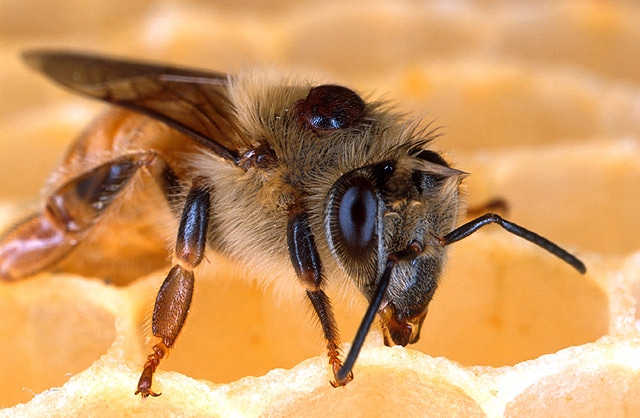Consortium will screen variety of chemical compounds for ability to control Varroa mites with minimal damage to honeybees and colonies.
March 14, 2018

Agricultural Research Service (ARS) entomologist Steven Cook will be leading a $1 million, funded international consortium of scientists to seek new controls for Varroa mites, the number-one pest of honeybees.
Cook -- with the Bee Research Laboratory, a part of the ARS Beltsville (Maryland) Agricultural Research Center -- will be the principal investigator of a group that will include scientists from the U.S., Canada and Spain.
The researchers will be screening a variety of chemical compounds for their ability to control Varroa mites with minimal damage to honeybees on an individual and colony level, ARS said. Laboratory and field studies will be conducted at facilities in Alabama, Georgia, Maryland, Ohio and Alberta.
In laboratories in Nebraska and Spain, scientists also will be using advanced methods to work out an understanding of the molecular mechanisms by which Varroa mites develop resistance to various chemical controls.
Improving knowledge of such mechanisms would provide a better guide to researchers and narrow the field in the future for selecting chemicals worth screening as new control agents for Varroa mites.
The largest single grant for this project is a $475,559 award to Cook from the Pollinator Health Fund, which the Foundation for Food & Agriculture Research (FFAR) established in response to the agricultural threat posed by declining pollinator health. Other funding comes from participating universities, Project Apis m. and in-kind support from a number of regional beekeepers.
The Honey Bee Health Coalition, a diverse network of key groups dedicated to improving the health of honeybees and other pollinators, also will provide expertise to facilitate the researchers' efforts.
Insect pollinators contribute an estimated $24 billion to the U.S. economy annually, according to FFAR. Honeybees specifically pollinate about 100 crops in the U.S. Varroa mites have become resistant to many commercially available chemical control agents in recent years, ARS said.
You May Also Like



